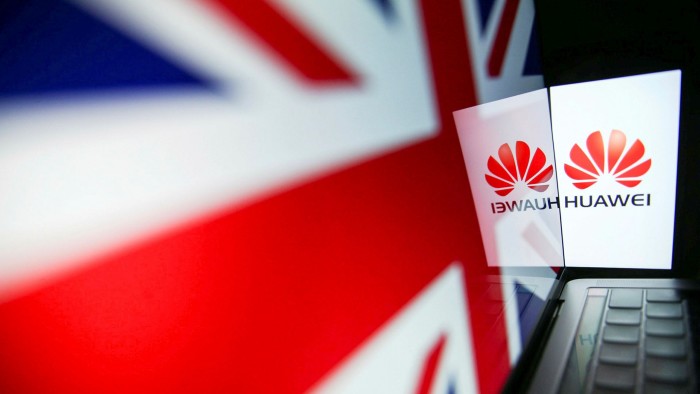London cements position as hub for telecoms patent disputes

Roula Khalaf, Editor of the FT, selects her favourite stories in this weekly newsletter.
When Huawei lost a legal challenge at the UK’s highest court last year, over the licensing of patented technology, lawyers predicted that the landmark ruling would cement London’s place as a global centre for such disputes.
The UK’s Supreme Court ruled against the Chinese telecoms group and concluded that English courts were an appropriate forum for dealing with the validity of foreign patents. It said judges could grant an injunction to restrain infringement of a UK patent if a company refused to take out a global licence of a multinational patent portfolio.
The dispute was one of the sector’s most important lawsuits for years. Huawei had first brought the court case in 2014 when it was accused of infringing intellectual property belonging to US group Unwired Planet, which had acquired patents covering wireless connectivity from telecoms group Ericsson in 2013. Huawei argued that it should only pay licence fees for the technology in the UK, a relatively small market, rather than on its global sales.
This type of legal dispute is becoming increasingly important not just for telecoms companies, but also for businesses such as car manufacturers or smart home appliance makers that are developing internet-connected devices reliant on 5G and other communication technologies.
Patent holders cannot unfairly withhold technology from companies, though.
Standard Essential Patents (SEPs) protect technologies that are seen as vital to underpinning a technical standard. However, in the telecoms sector, standard-setting organisations such as the European Telecommunications Standards Institute (ETSI) require members to grant licences of their patented technology on terms that are “fair, reasonable and non-discriminatory”, or Frand.
This gives companies that make mobile phones access to the patented technology and ensures a fair reward to innovators and SEP owners.
Since last year’s landmark ruling, London courts have become an increasingly attractive place for SEP holders to enforce their rights if they believe there have been breaches.
There are now a number of Frand disputes going through London’s High Court, including a case brought by US group PanOptis against Apple; a dispute brought by IP Bridge, a Japanese patent firm, against Huawei; and a lawsuit brought by InterDigital, a wireless tech group, against Lenovo, a tech company.
Yohan Liyanage, partner at international law firm Linklaters, says: “Some cases involving Frand were waiting for the Supreme Court decision and have continued. There are also lots of disputes in the US, Germany and China.”
A particular attraction of the English courts for claimants is their ability to grant an injunction if a defendant does not enter into a global IP licence on Frand terms.
Lawyers say it can be worthwhile for claimants to bring proceedings in the UK against defendants whose UK sales may not be significant because the claimant can then obtain a global licence.
London is already an established centre for companies to thrash out legal disputes, for other reasons. The UK’s High Court is seen as a safe and neutral forum and, unlike the US, civil lawsuits do not have juries but are decided by judges alone.
“There are quite a few cases coming through the courts and London will remain one of the main jurisdictions along with Germany,” says Gary Moss, partner at EIP, who acted for Conversant and Unwired, the companies that sued Huawei in the Supreme Court case. “It is attractive because of the quality of the judiciary and fairness of the courts. We have such quality judges dealing with these cases.”
Moss says London courts are also more willing to indicate a rate for Frand than other jurisdictions.
More stories from this report
Delayed Europe patent court launch prolongs frustration
Brussels’ Teva probe reveals dark side of patent protections
ESG shift fuels IP law collaboration and generates new work
IP law firms battle flush tech groups for top talent
US plays catch-up with Europe over biosimilar patents
Digitisation climbs up legal agenda
US Covid IP waiver U-turn alone will not solve vaccine crisis
In at least one case, a licensee has opted to withdraw certain patents from the UK. Zyxel, a Taiwanese network equipment manufacturer, declined to enter into an agreement with SEP owners TQ Delta, signalling that it would rather accept an injunction on one of its broadband technology patents than a global Frand rate set by the English courts.
As global disputes over Frand intensify, one litigation tactic that is becoming commonplace is the deployment of anti-suit injunctions, which allow companies to prevent opponents from lodging a lawsuit in another jurisdiction. There have even been cases of anti-anti-suit injunctions, as parties fight about where the case should be heard.
In 2019, telecoms company Nokia brought patent infringement proceedings in Germany against car manufacturer Daimler. But US car parts company Continental, which supplies some of the allegedly infringing components to Daimler, sought an anti-suit injunction in California to stop Nokia from proceeding with the German lawsuit against Daimler.
Daimler then obtained an anti-anti-suit injunction from the German courts ordering Continental to withdraw its anti-suit injunction motion.
In June 2021, Daimler agreed to buy 3G and 4G licences directly from Nokia, ending the long-running intellectual property dispute. Nokia’s
litigation with Continental continues in US courts.
“I would expect more disputes going forward due to the growth of technology,” says Liyanage. “We are seeing a lot of cases relating to 4G and 3G patents and we haven’t even seen the 5G ones coming through yet.”
Comments